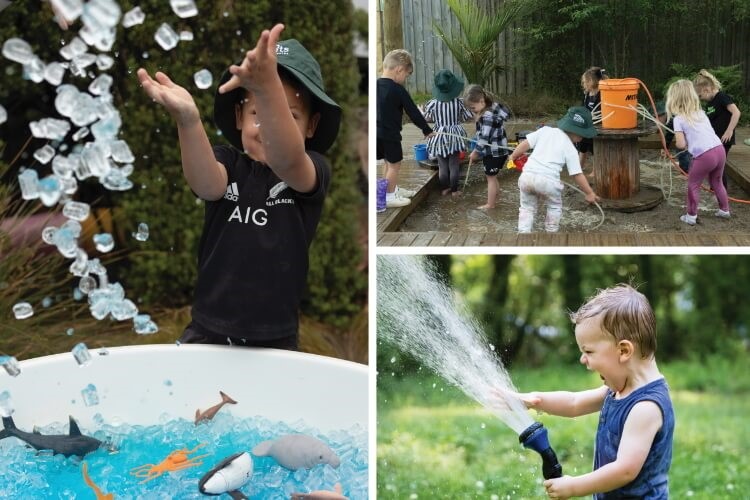Splash into summer with…
Rascals are excited to launch their NEW Swim Pants, perfect for little ones as we splash into …
Read More


The art of finding inner peace for children in this busy world may be easier than you think. New Shoots co-owner, director and founder Michelle Pratt explains...
Finding inner peace may seem elusive as adults in our fast-paced and increasingly chaotic world. We often get caught up in the hustle and bustle of daily life, leaving little room for self-reflection and tranquillity, and this is also sadly true for our little people.
Water play for children isn't just a fun activity, it offers many opportunities to learn about their outdoor environment and build logical and mathematical thinking. Children naturally problem-solve, explore and experiment as they play. They discover what objects float and sink or how water moves as it is poured into different containers. They may also explore measurements and mathematical equations such as "more than" or "less than" as they fill different-sized buckets of water. They can pour, splash, float objects, or even build structures with it. The open-ended nature of water play encourages children to develop ideas and invent new games or scenarios.
Scooping, pouring and running their small hands through water isn't only therapeutic, it helps children develop their fine and gross motor skills. They begin developing natural grip movements, refined with time and repetition. Children who carry these containers develop large muscle groups and gross motor skills.
And in terms of swimming, core strength and stamina are built as children splash, kick and move their bodies through the water. Water play stretches a child's imagination as they explore new water-use methods and make sense of the world through sensory exploration. It engages multiple senses when children experiment with different textures, temperatures, and fluidity, which can further inspire curiosity and creativity.
Water play also provides an opportunity for children to develop critical social skills when working in pairs or groups. Alongside developing new vocabulary, children will often role-play different situations. Playing in pairs or groups, they practice words out loud and string sentences together.
Pretty quickly, they're able to structure more complicated sentences. As they become more competent in socialising, they learn to work together, taking turns listening and speaking.
Stay tuned for part four in this series in our autumn issue | newshoots.co.nz
Rascals are excited to launch their NEW Swim Pants, perfect for little ones as we splash into …
Read MoreAdding a new family member in 2025? Now is a great time to look at your options for life …
Read MoreIntroducing a research-based, post-pregnancy formula to support a positive mood, calm & sleep, from …
Read MoreCookie Policy | Terms & Conditions | Privacy policy | Copyright © 2025 www.ohbaby.co.nz. All Rights reserved.